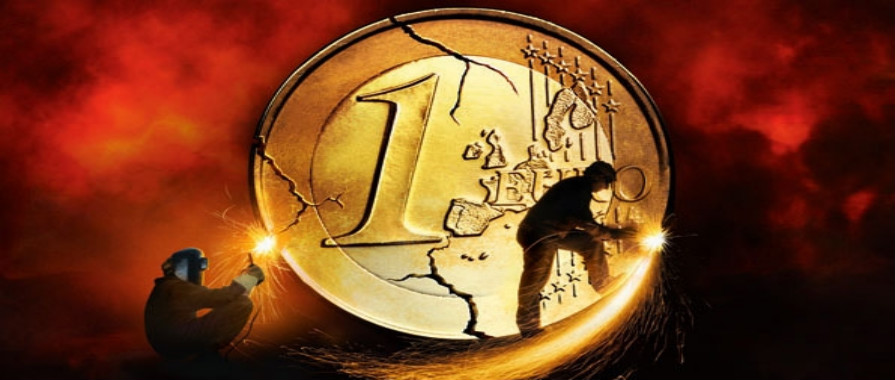Last week it became clear that, as regards the euro, political Europe has overstepped the limits of its power. The joint statement by France’s President François Hollande and German Chancellor Angela Merkel saying that “Germany and France are deeply committed to the integrity of the Eurozone” and are “determined to do everything to protect the Eurozone” was little more than an act of desperation.
By the third sentence of that statement , which urged Eurozone members and European institutions to “comply with their obligations, each in their own area of competence” , it was already apparent how far apart perceptions of the crisis are now in the individual euro countries, including France and Germany.
These are the death throes of a joint euro diplomacy. Any agreement is merely on the surface, while powerful centrifugal forces are at work beneath it. And these forces are getting stronger. On one day, European Central Bank boss Mario Draghi announced the prospect of further help for the countries facing severe austerity measures, only to have German Finance Minister Wolfgang Schäuble send a different message the following day.
Greece is asking for more time, as daily news of Athens’s failures has German politicians now openly talking about shutting Greece out of the Eurozone. wants Germany to give it money. And of course nobody can agree on instruments: bonds, direct or indirect? Direct help for the banks? More austerity measures?
The German government has a minority position on the ECB board although that picture changes somewhat if one includes Eastern European EU members. A deep split is forming between the North and the South, and it’s only a question of time before the partners reach that moment when they look into each other’s eyes and admit: this isn’t working anymore.
During the 11 years of the euro’s existence, the economic spaces in the North and the South haven’t enhanced each other – they’ve just grown further and further apart. Under conditions like that, a joint currency just doesn’t make any sense.
* Published by Die Welt
